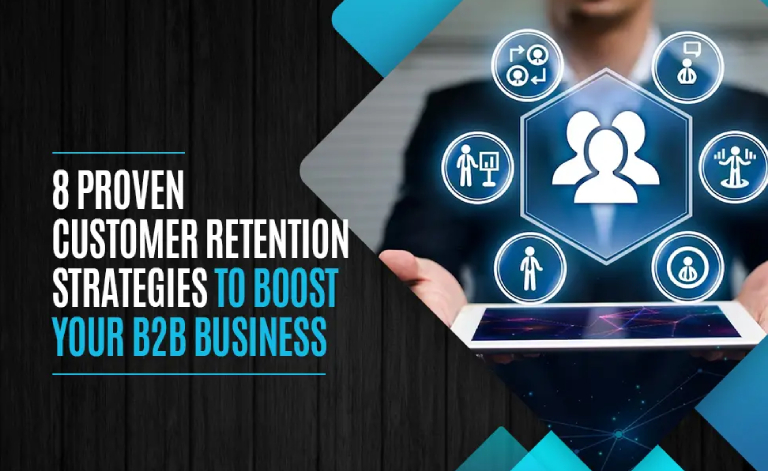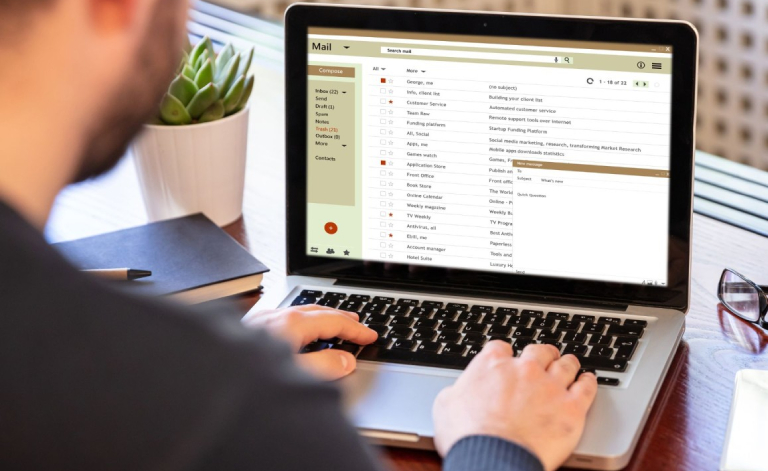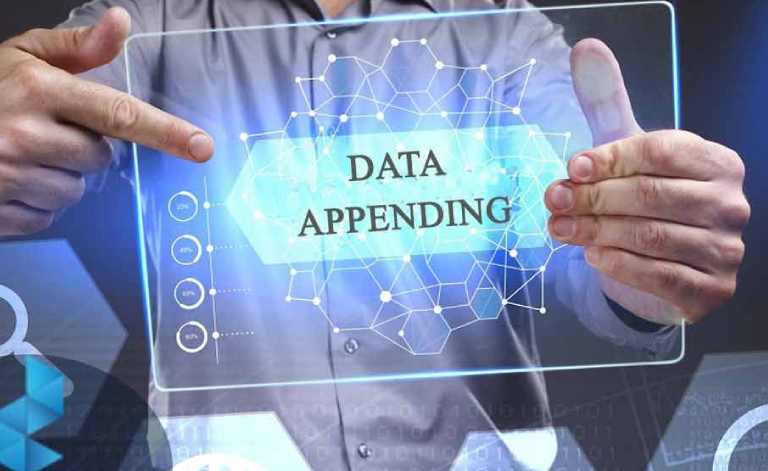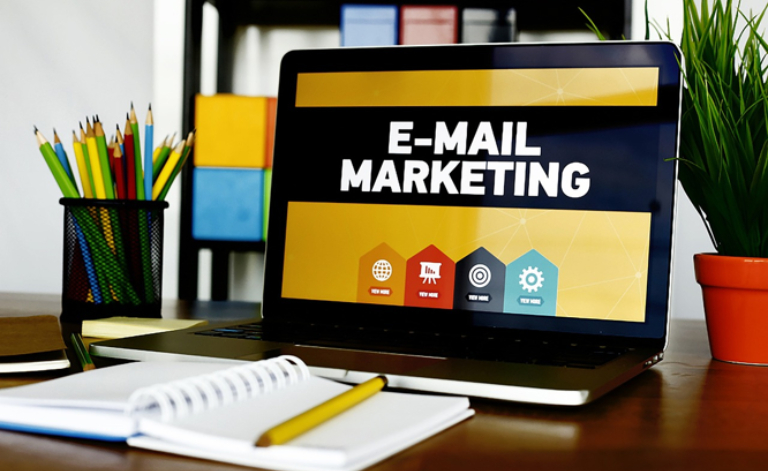
Are you aware of the vital aspects of an ever-evolving landscape of B2B relationships? Do you know customer retention has become a cornerstone for sustainable business growth? While acquiring new clients is essential, fostering long-term partnerships with existing customers can be even more lucrative. Let us explore some human-centric strategies to enhance B2B customer retention and build lasting connections!
Beyond Transactions The transactional nature of business has many things to explore. Treating your clients matters the most as they are more than just an invoice number. Personalized engagement involves understanding your client’s needs, preferences, and pain points. Tailor your communication and offerings that show them that you genuinely care about their success.
Never wait for your clients to reach out with a problem. You should be proactive in your communication. Regular check-ins, status updates, and relevant industry insights can go a long way in demonstrating your commitment to their success. Address your customer’s needs and get potential issues before they arise. It can position your company as a reliable partner and foster trust.
Try becoming a valuable resource for your clients by providing content beyond your product or service. Share industry trends, best practices, and educational materials to help them solve problems or capitalize on opportunities. Positioning your company as an expert in the field can add value to your client’s businesses and strengthen the bond.
You should actively seek feedback from your clients and, more importantly, act on it. Conduct regular surveys or hold feedback sessions to provide valuable insights into your clients’ satisfaction levels and areas for improvement. Show them that you value their opinions by making necessary adjustments based on their feedback.
Consider creating a loyalty program that rewards clients for their continued partnership. Exclusive discounts, early access to new features, or personalized incentives can make your clients feel appreciated. Recognizing and rewarding loyalty strengthens the relationship and gives your clients additional reasons to stay committed to your brand.
You can assign dedicated account managers to each client. Having a single point of contact builds a more personal and accountable relationship. Account managers can proactively address concerns, offer personalized solutions, and ensure the client feels valued. This human touch goes a long way in creating a positive customer experience.
Do you want to position your business as a true partner? Consider engaging in collaborative problem-solving. When problems emerge, collaborate with your clients to work for solutions.
This approach strengthens the partnership and showcases your commitment to their success. Building a sense of shared goals and accomplishments fosters a deeper connection.
Customer retention is vital in the dynamic world of B2B to ensure sustainable growth. These strategies can help you go beyond the transactional and build lasting connections with your clients. Remember, it’s not just about the product or service you provide; it’s about the relationships you nurture and the value you bring to your clients’ businesses. You will find that the investment in customer retention pays off in the form of advocacy and sustained business success.
Do you know a precise B2B email list is crucial for effective customer retention in the B2B space? An accurate and up-to-date email list configured by GainB2B ensures that your communication reaches the right contacts within client organizations. It enhances the likelihood of engaging decision-makers and key influencers, facilitating proactive communication, personalized engagement, and timely delivery of valuable content. It helps build and maintain strong, lasting relationships, a cornerstone of successful B2B customer retention strategies.

Are you thinking of investing in an accurate B2B email list? Do you have some doubts about your move? If you want a precise B2B email list for marketing, it can offer many benefits and ensure success in your venture. Business-to-business or B2B marketing is dynamic and requires precision and targeted outreach. Nothing can outsmart the advantage of having a high- quality email list for your B2B marketing endeavor.
Every business strives to connect with the right audience and maximize their marketing efforts. It requires investing in an accurate B2B email list that emerges as a strategic game-changer.
Many benefits come with acquiring a precise and reliable B2B email list.
Marketing is about precision, which an accurate B2B email list offers. It enables businesses to hone in on their target audience with laser-like precision. You can reach the right decision- makers within organizations; your marketers can significantly enhance engagement rates. This targeted approach ensures your message resonates with those who hold the purchasing power, leading to more meaningful interactions and higher conversion rates.
Marketing budgets are precious resources that you should invest wisely. A B2B email list allows your business to allocate the budget more efficiently by focusing on the most promising leads. With a targeted approach, your marketing efforts get streamlined.
It reduces the cost per acquisition and maximizes the return on investment. A cost-effective approach is vital for small and medium-sized enterprises looking to utilize their resources.
Trust is the pillar of any successful business relationship. A reliable B2B email list ensures your messages are delivered to the right individuals, preventing your communications from being perceived as spam. Reaching decision-makers directly and consistently helps your business establish trust and credibility over time. Fostering trust is instrumental for long-term relationships and positioning your brand as a reliable partner in the eyes of potential clients.
One-size-fits-all marketing approaches are the best for an organization. A B2B email list empowers your business to create personalized campaigns tailored to the specific needs and preferences of the target audience. You can understand the prospect’s pain points and
challenges and craft messages that resonate perfectly. It leads to higher engagement and increased chances of conversion.
A precise B2B email list is the foundation for an optimized sales funnel. It ensures your leads are highly qualified and relevant, which helps your business move prospects seamlessly through the various stages of the sales process. A reliable email list facilitates a smoother journey, like awareness, decision-making, and conversion. It reduces the likelihood of drop-offs and increases the overall efficiency of the sales funnel.
Do you know what matters in creating effective marketing strategies? Accurate data is thebackbone. An up-to-date B2B email list helps your business gain valuable insights into its targetaudience, allowing for data-driven decision-making. You can analyze engagement metrics, openrates, and other key performance indicators. Marketers can refine their strategies, optimizecampaigns, and continuously improve marketing efforts.
What about the data privacy regulations? Data privacy is essential and should be prioritized. Ensure having an accurate B2B email list designed with compliance. It ensures your email list consists of opted-in and legitimate contacts. It helps your business avoid legal pitfalls and maintain a positive reputation. Your commitment to compliance can protect your brand and foster trust among your audience.
The advantages of having a reliable and precise B2B email list are evident for businesses seeking to maximize their marketing efforts. When precision is paramount, a high-quality email list is a strategic asset, propelling businesses toward marketing success and sustained growth. Consider working with a trustworthy B2B email list provider- GainB2B, to fuel your marketing efforts and gain success.

In the ever-evolving world of B2B business, data has emerged as a powerful tool that can drive revenue and maximize return on investment (ROI). The evolution of advanced analytics and technologies helps businesses access data to gain valuable insights about their customers and market trends.
Let us explore how B2B data can fuel your success and help you make informed decisions tha drive revenue and ROI!
One of the primary advantages of B2B data is its ability to provide valuable customer insights. Analyzing data from various sources help businesses understand their customer’s preferences and behaviors. You can tailor marketing campaigns, refine product offerings, and improve customer experience. Aligning your strategies with customer needs enhances customer satisfaction and loyalty. No doubt it drives revenue growth and increases ROI!
B2B data empowers companies to target their marketing efforts with pinpoint accuracy. Segmenting and analyzing data helps businesses identify specific industries, regions, or company sizes to convert into customers. It enables the creation of targeted marketing campaigns that resonate with the intended audience. It increases the chances of acquiring qualified leads. Optimizing your marketing spend and focusing on the most promising prospects can maximize your growth.
Personalization has become a key driver of success in B2B marketing. With the help of data, businesses can create personalized experiences for their customers. By leveraging data insights, you can deliver tailored content, product recommendations, and offers that align with each customer’s unique needs and preferences. Personalized marketing improves customer engagement, increases conversion rates, and drives revenue growth. Businesses can stay ahead of the competition by investing in data-driven personalization strategies.
B2B data is not limited to customer insights; it can enhance operational efficiency. Analyzing data related to supply chain management, inventory levels, and customer service helps businesses optimize their operations. Data-driven insights can help streamline processes,
reduce costs, and identify bottlenecks. Operational efficiency enables businesses free up resources to invest in revenue-generating activities, resulting in improved ROI.
With the help of advanced analytics and predictive modeling, B2B data can be used to forecast future trends and outcomes. By analyzing historical data and market trends, businesses can make more accurate predictions about customer behavior, demand patterns, and market shifts.
It enables proactive decision-making, allowing businesses to expect customer needs and adjust pricing strategies. By leveraging predictive analytics, you can stay agile and make informed decisions.
In today’s competitive B2B landscape, data has become a game-changer. By harnessing the power of data analytics, businesses can gain valuable customer insights, target their marketing efforts, personalize customer experiences, optimize operations, and make informed decisions. Embracing the power of B2B data is no longer an option but a necessity for businesses seeking to thrive in the digital era. Remember, success in B2B is not about the quantity of data but the quality of insights derived from it.
Data can help you with everything, from finding new customers to sending personalized messages.
Businesses are effectively utilizing B2B data service providers in the following ways:
A reliable B2B data provider like GainB2B ensures you get all the information you need to get the most out of your sales and marketing investments. The majority of businesses are gaining business advantages by utilizing the power of our accurate B2B data. Our B2B data specialists are available to assist you in getting started to achieve growth.
Invest in GainB2B’s robust data collection, management, and analytics systems to unlock the full potential of B2B data and drive sustainable growth in today’s dynamic marketplace.

The age of data-driven decision-making needs businesses to maintain clean and accurate data.
Data cleansing, also known as data scrubbing or cleaning, to identify, correct, or remove errors and inaccuracies in datasets. By ensuring the quality and integrity of data, organizations can enhance their operational efficiency, optimize analytics, and make informed decisions.
Here are the essential things to know about the data cleansing process and its significance in today’s data-driven world!
Data cleansing involves several steps aimed at improving the quality of data.
Data profiling helps to understand the characteristics and quality of the dataset.
Data auditing identifies anomalies and inconsistencies.
Data matching involves comparing data across various sources to identify duplicates or conflicting information.
Data enrichment enhances the dataset by appending missing information or validating data against external sources.
These steps aim to cut errors, improve accuracy, and ensure consistency within the dataset.
Data cleansing helps address many data quality issues that arise from human errors, system glitches, or data integration processes. Common problems include duplicate records, missing values, inconsistent formats, spelling errors, outdated information, and incomplete or inaccurate data entries.
Identifying and resolving data quality issues can help organizations prevent incorrect analysis, flawed reporting, and unreliable decision-making.
Data cleansing offers several benefits that impact an organization’s efficiency and bottom line.
Clean data reduces costs associated with data storage and enhances the effectiveness of data analytics and reporting.
In short,
Implementing effective data cleansing requires following a set of best practices.
Maintaining a well-documented data dictionary and establishing data validation rules can help maintain data accuracy and consistency over time.
Data cleansing is not without its challenges. Some common obstacles include handling large volumes of data, integrating data from diverse sources, dealing with unstructured or semi- structured data, and managing data privacy and security concerns.
The manual effort required for data cleansing can be time-consuming and resource-intensive. Strike a balance between automation and human intervention to ensure efficient and accurate data cleansing.
Organizations can’t afford to ignore the significance of data cleansing in today’s data-driven world. Businesses can enhance their decision-making processes, operational efficiency, and customer relationships by eliminating errors, inconsistencies, and inaccuracies.
Understanding the data cleansing process, identifying common data quality issues, and implementing best practices can help organizations maximize the benefits of data cleansing while overcoming challenges.
Focus on data quality and maintain clean datasets to unlock the true potential of their data assets and gain a competitive edge in the digital landscape.
Any B2B business that wants to succeed in today’s data-driven environment must prioritize data cleansing.
Organizations can better allocate resources, comply with regulatory requirements, and protect data privacy and security with data cleansing.
Working with a reputable B2B data provider- Gain B2B ensures your data stays safe and protected. Get in touch with our expert team to get the most out of your data, gain a competitive advantage, and set yourself up for success in a digital world that is changing quickly!
Email: info@gainb2b.com or call us at 1 646-403-4187 for your B2B data requirements!

Email marketing is a valuable asset for organizations to arrive at potential B2B clients. However, the quality of your email lists is vital to the success of your marketing campaigns. Buying high- quality B2B email lists can significantly boost your marketing efforts, enabling you to connect with the right audience and drive conversions. But with the abundance of options available, it’s crucial to crack the code and choose the right email list provider.
Here we provide insider tips to help you make informed decisions and acquire top-notch B2B email lists.
Before diving into the process of buying email lists, it’s essential to have a clear understanding of your target audience. Determine your ideal customer profile (ICP) by considering factors- industry, company size, job title, and geographic location. Identifying your target audience narrows your search for email lists and ensures you invest in reliable data.
With numerous email list providers in the market, it’s crucial to research and identify reputable companies. Look for providers with a proven track record, positive customer reviews, and a solid reputation for delivering high-quality data. Consider factors like data accuracy, list segmentation, and compliance with data protection regulations. Reputable data and email list providers like GainB2B have stringent processes to ensure data hygiene and quality, minimizing the chances of outdated or irrelevant contacts.
To ensure the quality of the email lists, ask the provider for a data sample. Analyze the accuracy, relevancy, and completeness. Check for updated and verified contact information, including email addresses, phone numbers, and job titles. Look out for bounce rates and spam traps, as these scenarios negatively impact your email deliverability. Additionally, consider the provider’s data collection methods and whether they adhere to ethical practices and legal compliance.
A well-segmented email list allows you to tailor your campaigns and deliver personalized content to specific target groups. Inquire about the provider’s segmentation options, such as industry, job title, company size, or geographic location. Granular segmentation options are better for targeting your audience and increasing the chances of engagement and conversion.
Email lists can quickly become outdated as professionals change jobs, companies merge or contact information changes. Check the provider’s data refresh rate and their process for updating and maintaining the lists. Ideally, choose a provider that offers regular updates and ensures the freshness of their data. Accurate email lists increase the likelihood of reaching the right audience, reducing the bounce rate, and improving your email campaign’s overall performance.
Before finalizing any purchase, review the legal and privacy considerations associated with the data provider. Ensure they comply with data protection regulations. Verify that the provider collects data ethically and has obtained consent from the individuals on the list to receive marketing communications. By adhering to legal and privacy requirements, you mitigate the risk of legal issues and maintain a positive brand reputation.
Buying high-quality B2B email lists is a strategic investment that can significantly enhance your email marketing campaigns. By defining your target audience, researching reputable providers, verifying data quality, evaluating list segmentation options, considering data freshness, and reviewing legal and privacy considerations, you can make informed decisions and ensure the effectiveness of your email campaigns. Remember, a high-quality email list enables you to reach the right audience, boost engagement, and drive conversions, resulting in a successful and impactful B2B marketing strategy.
If you desire to develop your business, then, at that point, you ought to secure B2B data solutions!!!
Organizations around the globe saw a critical improvement in their business after coordinating the exact mailing solution in their mission. Building robust communication is essential to turn a potential customer into a customer. In B2B marketing, the best way to start a conversation with potential customers is with a mailing list that has been validated and verified.
Purchasing targeted B2B email lists drives your company to accomplish a lot of deals and income. It can assist you in achieving successful business outcomes quickly. You should outwit your rivals and become a market leader in the fierce competition worldwide.
Get help from our expert team for targeted B2B2 email lists that work! Email: info@gainb2b.com or call us at 1 646-403-4187 for your B2B email list requirements!

Businesses are looking for many ways to stay ahead of the competition and drive growth in today’s fast-paced digital landscape. Effective marketing strategies have become paramount for success, and one of the most powerful tools in a marketer’s arsenal is data.
Modern B2B marketing relies heavily on data.
Data-driven marketing strategies use around forty percent of brands. Marketers use the rest data from third-party channels to better understand their audience. It gives you the ability to make your marketing strategies accurate and successful.
Marketers use a data-backed strategy to eliminate assumptions and make evidence-based projections. These help them comprehend customers, anticipate their concerns, and strategically enhance the customer experience. They can improve the results of their marketing and business once they have the necessary information.
By harnessing the potential of data analytics, businesses can gain valuable insights into customer behavior, preferences, and market trends.
Here we will explore the data advantage and how it can propel your business growth, helping you make informed decisions, optimize marketing campaigns, and enhance customer experiences!
Data analytics gives businesses a comprehensive understanding of customer behavior, enabling them to tailor their marketing strategies accordingly. Analyzing customer data, such as purchase history, browsing patterns, and demographics, helps businesses gain insights into what drives customer engagement and conversions. With this knowledge, marketers can create targeted campaigns that resonate with their audience, resulting in higher conversion rates and customer loyalty. Additionally, data-driven insights can help identify customer pain points and areas of improvement, allowing businesses to optimize their products or services to meet customer expectations.
By leveraging data, businesses can create highly personalized experiences for their customers. Data analytics can help identify inpidual customer preferences, interests, and purchase patterns, allowing marketers to deliver relevant content, recommendations, and offers. This level of personalization not only enhances the customer experience but also increases customer satisfaction and loyalty. Using data to tailor marketing messages and offers to specific customer segments can help businesses foster stronger connections and drive repeat purchases.
Data-driven insights play a crucial role in optimizing marketing campaigns. Analyzing campaign performance metrics, such as click-through rates, conversion rates, and customer acquisition costs, helps businesses identify effective marketing channels and strategies. It allows them to allocate their resources wisely and focus on networks that generate the highest return on investment. Furthermore, data analytics can provide real-time feedback, enabling marketers to make immediate adjustments and improvements. Businesses can maximize their marketing efforts and drive higher engagement and conversions by constantly testing and iterating based on data insights.
Data analytics provides insights into customer behavior and helps businesses gain a competitive advantage by identifying market trends and predicting future consumer demands. Businesses can uncover emerging trends and consumer preferences by monitoring social media conversations, online reviews, and industry reports. It allows them to adapt their products, services, and marketing strategies to stay ahead. Moreover, data analytics can help identify gaps in the market and areas of untapped potential, enabling businesses to develop innovative offerings that meet evolving customer needs.
In today’s data-driven world, leveraging the power of data analytics is crucial for business growth. By understanding customer behavior, businesses can create personalized experiences that drive customer engagement and loyalty. Data-driven insights also enable marketers to optimize campaigns, allocate resources effectively, and maximize return on investment. Furthermore, data analytics empowers businesses with a competitive advantage by identifying market trends and predicting consumer demands. Embracing effective marketing strategies powered by data is no longer a luxury but a necessity for businesses looking to thrive in the digital age.
So, take advantage of GainB2B‘s reliable and accurate B2B data and propel your business growth to new heights!
Email: info@gainb2b.com or call us at 1 646-403-4187 to achieve business growth by having GainB2B as your reliable data provider!

In today’s data-driven world, businesses want to enhance their understanding of customers and improve their marketing strategies. Data appending services have emerged as a valuable solution, providing companies with accurate and up-to-date information to enrich their existing customer databases.
Let us delve into the concept of data-appending services, explore their benefits, discuss the different types of data, and provide insights into how organizations can leverage this service to gain a competitive edge!
Data appending enhances and refines an existing database by adding missing or incomplete information. It involves matching customer records with external data sources to obtain additional details such as email addresses, phone numbers, demographic information, social media profiles, and more. By filling in these gaps, businesses can gain a more comprehensive view of their customers, allowing them to personalize marketing campaigns, improve targeting efforts, and enhance customer experiences.
Data appending services enable businesses to enhance their understanding of customers, personalize marketing efforts, and improve overall operational efficiency. By harnessing the power of appended data, organizations can make informed decisions, optimize their marketing strategies, and gain a competitive advantage in today’s data-centric business landscape.
Trust a reputable data provider- GainB2B when appending data! For most businesses, data is vital, providing confidence to reach the right people in your sales and marketing networks.
Email: info@gainb2b.com or call us at 1 646-403-4187 to learn more about our data append services to find customers and achieve business growth!

While B2B direct mail marketing may not be the first strategy that comes to mind in the digital
age, it holds significant value for the healthcare industry. The healthcare sector is multifaceted,
involving various businesses and stakeholders working together to provide quality care. B2B
direct mail marketing, which requires sending physical promotional materials directly to many
healthcare providers and medical professionals, offers unique benefits for the healthcare
industry. In this blog, we will explore why B2B direct mail marketing matters in healthcare,
discussing its effectiveness in reaching decision-makers, building relationships, and driving
business growth.
B2B direct mail marketing provides an effective means of targeting decision-makers in the
healthcare industry. From hospital administrators and medical practice managers to
pharmaceutical executives and insurance providers, reaching the right individuals is essential
for generating business opportunities. Direct mail allows healthcare organizations to identify and
engage with these decision-makers directly. By tailoring the content and messaging to address
their specific needs and pain points, B2B direct mail campaigns can capture the attention of
stakeholders, showcasing the value and solutions the healthcare organization offers.
In a digital world overflowing with emails and online advertisements, B2B direct mail marketing
stands out as a tangible and memorable way to make an impact. By sending physical
promotional materials, such as brochures, samples, or branded merchandise, healthcare
organizations can create a lasting impression on their B2B recipients. A well-designed and
carefully crafted direct mail piece can capture attention, pique curiosity, and ensures an
enviable physical representation of the healthcare organization's brand and offerings. This
tangible presence enhances brand recall and fosters a sense of credibility and trust among
recipients.
B2B direct mail marketing is vital in relationship building and networking within the healthcare
industry. The personalized nature of direct mail allows healthcare organizations to demonstrate
their dedication to building mutually beneficial partnerships. B2B direct mail campaigns can
foster connections and establish rapport with key stakeholders by including personalized
messages, hand-written notes, or invitations to industry events. Additionally, direct mail can be
utilized as a follow-up tool after networking events or business meetings, reinforcing the
engagement and leaving a lasting positive impression on potential business partners.
B2B direct mail marketing offers an excellent opportunity for healthcare organizations to
showcase their products and services to potential business partners. Direct mail pieces can
include product catalogs, case studies, or informational brochures having the unique features
and benefits of the healthcare organization's offerings. By presenting tangible information and
examples of success, B2B direct mail campaigns enable healthcare providers to demonstrate
their expertise, innovation, and value proposition to decision-makers in the industry. It can
significantly influence decision-making when choosing a healthcare partner or service provider.
B2B direct mail marketing can be integrated with digital marketing strategies, amplifying their
effectiveness. By incorporating personalized URLs (PURLs), QR codes, or unique promotional
codes in direct mail pieces, healthcare organizations can drive recipients to visit dedicated
landing pages, complete online forms, or access exclusive online content. This integration
enables healthcare providers to track the response and engagement of B2B recipients, gather
valuable data, and follow up with targeted digital marketing efforts. The combination of direct
mail and digital marketing creates a multi-channel approach that maximizes reach and boosts
overall campaign effectiveness.
B2B direct mail marketing is crucial for the healthcare industry, providing a targeted, tangible,
and memorable means of reaching key decision-makers, building relationships, and driving
business growth. By leveraging the unique benefits of direct mail, healthcare organizations can
effectively showcase their products and services, foster connections with industry professionals,
and integrate with digital marketing strategies. As the healthcare landscape continues to evolve,
B2B direct mail marketing remains a powerful tool to help healthcare providers stand out in a
crowded market, establish meaningful partnerships, and achieve their business objectives.
GainB2’s Healthcare email list or data set allows you to pick the elements that turn out best for
you. Our Health Care Professionals Email List is the best choice to reach people who provide
medical services or contact anyone in the healthcare industry. Our well-kept, clean, and
accurate healthcare email list can help you reach out to business decision-makers and senior
professionals in the healthcare industry.
Email: info@gainb2b.com or call us at 1 646-403-4187 to get help from our experienced team
for your direct mail marketing requirements!

Businesses can reach and engage with their target audience using email marketing. However, building a high-quality email list from scratch can be time-consuming and challenging. As a result, many businesses consider purchasing email lists to expedite the process. Before investing in such email lists, it is crucial to ask the right questions to ensure you make an informed decision.
Let us explore the key questions you should ask before buying an email list to maximize your
chances of success and avoid potential pitfalls.
The first and most important question is the email list creation. Ensure that the email list is ethical and the subscribers have given explicit consent to receive marketing communications. Purchasing lists through dubious practices such as scraping websites or buying from unverified sources can lead to unwanted consequences, including legal issues, damaged reputation, and poor email deliverability.
The quality and relevance of the subscribers in an email list are paramount. Before purchasing a list, you must assess whether the subscribers align with your target audience. Take into account purchasing patterns, interests, and demographics. An email list that includes individuals genuinely interested in your products or services is far more likely to result in engagement, conversions, and long-term customer relationships.
An outdated or unclean email list can be a significant hurdle in your email-marketing efforts. Ask the provider about the recency of the list and whether it has been regularly maintained and updated. An up-to-date list ensures you reach active subscribers, more likely to engage with your emails. Additionally, a clean list reduces the chances of bounces, spam complaints, and being flagged as a sender of unsolicited emails.
While the provider may claim that their email list is of high quality, it is essential to verify this claim. Ask for a sample of the list to evaluate its quality firsthand. Look for engagement metrics such as open, click-through, and conversion rates. Additionally, check for spam complaints and unsubscribe rates. Analyzing these metrics will help you gauge the effectiveness of the list and its potential to deliver meaningful results.
Ensure you thoroughly understand the permissions and terms of use associated with the email list. Clarify whether the list is for multiple campaigns or if it is a one-time use. Understand any restrictions on data sharing and using the list for personalized messaging. Understanding the terms will help you comply with regulations and get the best out of your investment.
Every business has unique needs and requirements. Inquire whether the provider allows customization of the email list to align with your specific criteria. It could involve segmenting the list based on demographics, geography, or other relevant parameters. Customization enhances the relevance of your email campaigns, leading to higher engagement and better results.
Conclusion
Buying an email list can be a shortcut to building a valuable audience for your marketing efforts, but it requires careful consideration. By asking the right questions regarding the acquisition method, relevance, cleanliness, quality, permissions, and customization, you can ensure that the email list you purchase is a strategic asset that drives your email marketing success.
Remember- Investing in a high-quality, permission-based email list can save you time and effort in the long run and provide you with a solid foundation for effective email marketing campaigns.
Trust an established email list provider- GainB2B, to get the best and most accurate data for your business growth with profitable leads!

In today’s digital age, reliable and accurate data is crucial for businesses to make informed decisions. Accurate and reliable data can drive successful B2B marketing campaigns. Finding a trustworthy B2B data provider can be challenging with the many options available.
The post gives valuable insights and tips to help businesses choose the most reliable B2B data provider. It ensures the data you get is accurate, up-to-date, and relevant to your needs.
Before searching for a B2B data provider, define your requirements. Understand your target audience, industry, and the specific data attributes you need. Consider geographic location, company size, industry verticals, and job titles. With a better understanding of your requirements, you can narrow your search and find a data provider specializing in your niche, increasing the chances of obtaining relevant and reliable data.
Data quality is paramount when selecting a B2B data provider. Poor-quality data can lead to wasted resources and ineffective marketing campaigns. Look for providers that offer high-quality data with accurate and up-to-date information.
Consider factors such as data sources, data verification processes, and data cleansing techniques employed by the provider. Ask about their data collection methodologies and how they ensure data accuracy.
Additionally, inquire about their data refresh cycles to ensure the information remains current. Client testimonials and case studies can also provide insights into the data provider’s track record and the reliability of their data.
With data privacy regulations becoming stringent, choose a B2B data provider that follows
relevant laws and regulations Ensure the provider has proper data protection measures and follows ethical data acquisition practices. Ask about their consent mechanisms for data collection and about having necessary permissions. A reliable data provider will focus on data privacy and compliance. It shows the B2B data provider’s commitment to protecting customer data.
Every business has unique data requirements, so rely on a provider that offers customization options. Determine if the data provider allows you to tailor data packages based on your specific
needs. Can you select specific data fields or filters to refine your target audience? Flexibility in data customization ensures that you only pay for the data you need and receive data that aligns with your marketing objectives.
Opt for a data sample test before committing to a B2B data provider. Request a small sample of data relevant to your target audience and check its accuracy and freshness. Compare the provided data against your existing customer data or available information.
Inquire about the data update and validation processes to ensure the information remains accurate and up-to-date. A reputable provider will offer data samples and discuss their verification and updating methodologies.
Data appending services can enrich your existing database by adding missing or incomplete data fields. Check whether the B2B data provider offers data appending services to enhance the completeness and accuracy of your data. The service saves time and effort in gathering comprehensive information about your target audience.
Conclusion
Choosing the right B2B data provider is crucial for businesses seeking accurate data to drive successful marketing campaigns. The tips outlined can help you make an informed decision and find a trustworthy provider that meets your requirements.
As a reliable B2B data provider- GainB2B ensures your emails reach the right person with a 100% delivery rate that maximizes response. We provide accurate data with personalized B2B email lists.
Contact GainB2B’s expert team today to discuss your requirements!

In B2B marketing, building a robust email list is crucial for effective lead generation. A B2B email
list with targeted, engaged prospects can significantly enhance your business’s reach and
conversion rates. However, constructing such a list requires a strategic approach.
Let us explore the seven proven steps to build your B2B email list. The best strategies can optimize
your lead generation efforts and drive business growth.
Before embarking on any email list-building efforts, define your audience base. Understanding
your ideal customers’ characteristics, pain points, and needs will help you tailor your campaigns
to resonate with them.
• Identify your target industry, job titles, company size, and other relevant criteria.
• Leverage market research, customer surveys, and data analysis to gain valuable insights.
By having a clear picture of your target audience, you can ensure your email list comprises
individuals who are most likely to convert into customers.
Give the potential subscribers valuable content or resources and entice them to join your email
list.
• Develop informative whitepapers, e-books, industry reports, or case studies that
addresses your audience’s pain points and offer solutions.
• Offer these resources as gated content, requiring visitors to provide their email addresses
to access them.
• Ensure that your content is well-researched, engaging, and offers unique insights.
By delivering exceptional value through your content, you can position yourself as an authority
in your industry, increasing the likelihood of prospects subscribing to your email list.
Maximize your website’s conversion potential by optimizing your sign-up forms.
• Place strategically positioned and visually appealing sign-up forms on your homepage,
landing pages, and blog posts.
• Keep the form fields concise and straightforward, asking for minimal information such as
name and email address.
• Avoid overwhelming potential subscribers with lengthy forms that may discourage them
from signing up.
• Highlight the benefits of joining your email lists, such as exclusive offers, industry insights,
or educational content.
Make the sign-up process seamless and emphasize the value proposition to increase conversion
rates.
Social media platforms offer immense potential for expanding your email list.
• Identify the social media channels by analyzing your target audience and creating
compelling content that drives engagement.
• Use social media to promote your gated content, encouraging users to provide their email
addresses to access valuable resources.
• Engage with your audience through discussions, polls, and Q&A session to build trust
and credibility.
• Leverage social media advertising to target specific audiences and drive them to your
sign-up forms.
Utilize social media channels to extend your reach and attract highly relevant subscribers.
Webinars and virtual events provide excellent opportunities to capture email address while
delivering valuable content.
• Hosting online events and webinars is the best way to attract your target audiences.
Promote these events through your website, email campaigns, and social media channels.
• Require registration for the event, collecting attendees’ email addresses in the process.
• During the webinar, provide valuable insights and interact with participants, establishing
your authority in the field.
Following the events, nurture the leads by providing relevant content via email. Webinars and
virtual events offer a powerful platform for connecting with prospects and expanding your email
list.
Contests and giveaways can be effective tactics to grow your B2B email list.
• Create engaging competitions or giveaways that align with your target audience’s
interests.
• Offer attractive prizes, such as industry-related tools, e-books, or consultations.
• Promote these contests on your website, social media channels, and email campaigns.
Entrants provide their email addresses to participate, which helps to expand your list of
potential leads.
Be sure to follow relevant legal regulations and guidelines when conducting contests. By offering
exciting incentives, you can attract prospects and incentivize them to join your email list.
Once you’ve built a substantial email list, maximize its effectiveness by implementing
segmentation and personalization strategies.
• Divide your subscribers into specific segments based on criteria such as industry, job role,
or previous interactions.
• Tailor your email campaigns to address unique needs and interests.
Leverage personalization techniques, like using recipients’ names, to create a more engaging and
personalized experience. Deliver relevant and targeted content to each subscriber to boost
engagement, increase open rates, and drive conversions.
Conclusion
Building a successful B2B email list requires a strategic approach and careful implementation.
Define your target audience with the best strategies and work with a reliable B2B data provider Gain B2B.
It will help you grow your email list and experience lead generation. Focus on providing value
and engaging with prospects to foster strong relationships and drive business growth.
We provide an accurate B2B database to ensure business growth.
Contact our expert team for more information about getting the best B2B Global Email List!